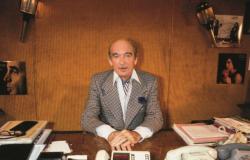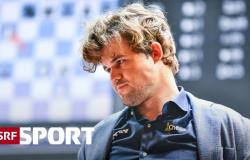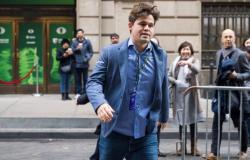At the center of the debate: the question of H1-B visas. They allow companies to bring foreign workers with specific qualifications to the United States. The sesame is widely used by Silicon Valley, and Elon Musk – himself who arrived from South Africa with this visa – is a fervent defender of the possibility of using qualified foreign labor. The richest man in the world, who has become a close ally and financial supporter of Donald Trump, affirmed Thursday on his X platform that “bringing the 0.1% of the most talented engineers via legal immigration is essential for America continues to win” internationally. scene.
Billionaire Vivek Ramaswamy, appointed by Donald Trump alongside Elon Musk to head a commission responsible for reducing state spending, also defended the use of foreign workers who bring with them the right “culture” in businesses in the United States. “Our American culture has worshiped mediocrity over excellence for far too long,” the businessman said on X. “A culture that celebrates the high school prom queen rather than the Math Olympiad champion , or the athlete rather than the valedictorian, will not produce the best engineers,” he added. . Without radical change, “we are going to get our ass kicked by China,” said the former Republican primary candidate.
Indignation. Statements which outraged certain conservative figures, accusing the two billionaires of minimizing the technological achievements made in the United States. Ultraconservative Stephen Miller, Donald Trump’s next deputy chief of staff at the White House, posted on X a 2020 speech by the Republican leader in which he marvels at the American “culture” which has “mastered electricity, split the atom, gave the world power.” telephone and Internet. A way for this influential advisor to recall that Donald Trump was once again elected with an essentially anti-immigration program and that, according to him, qualified foreign labor is not necessary for the United States to accomplish big things. things.
During his first campaign for the White House in 2016, Donald Trump expressed his opposition to H1-B visas, which he admitted to using himself within his companies but which he described as “very unfair to our workers” Americans. And he had put in place certain restrictions on these visas as soon as he came to power, before they were lifted by the Biden administration. The future American president has remained silent for the moment on this debate which is agitating conservative circles. But a position in either camp would provide clues about how he will govern in his second term. And which factions he intends to rely on the most.
“President Musk.” For some longtime followers, Silicon Valley has already inserted itself too deeply into Trumpist circles. “We greeted the technicians when they came running towards us (…). We did not ask them to design a migration policy,” joked Matt Gaetz, formerly elected to Congress and chosen for a time by Donald Trump as future Minister of Justice before having to give up. While Elon Musk almost single-handedly torpedoed, before Christmas, a budget agreement in Congress aimed at avoiding a paralysis of the federal state, some Democrats joked about a “President Musk”, with whom Donald Trump would ultimately be reduced to a role of spectator. .
It remains to be seen whether, after these first cracks in the veneer, the coalition which brought the Republican to the White House will manage to maintain a certain cohesion once in power. “I look forward to the inevitable divorce between President Trump and Big Tech,” conservative influencer Laura Loomer said on X. Before urging us to “protect President Trump from the technocrats.”
Robin LEGRAND
© Agence –






